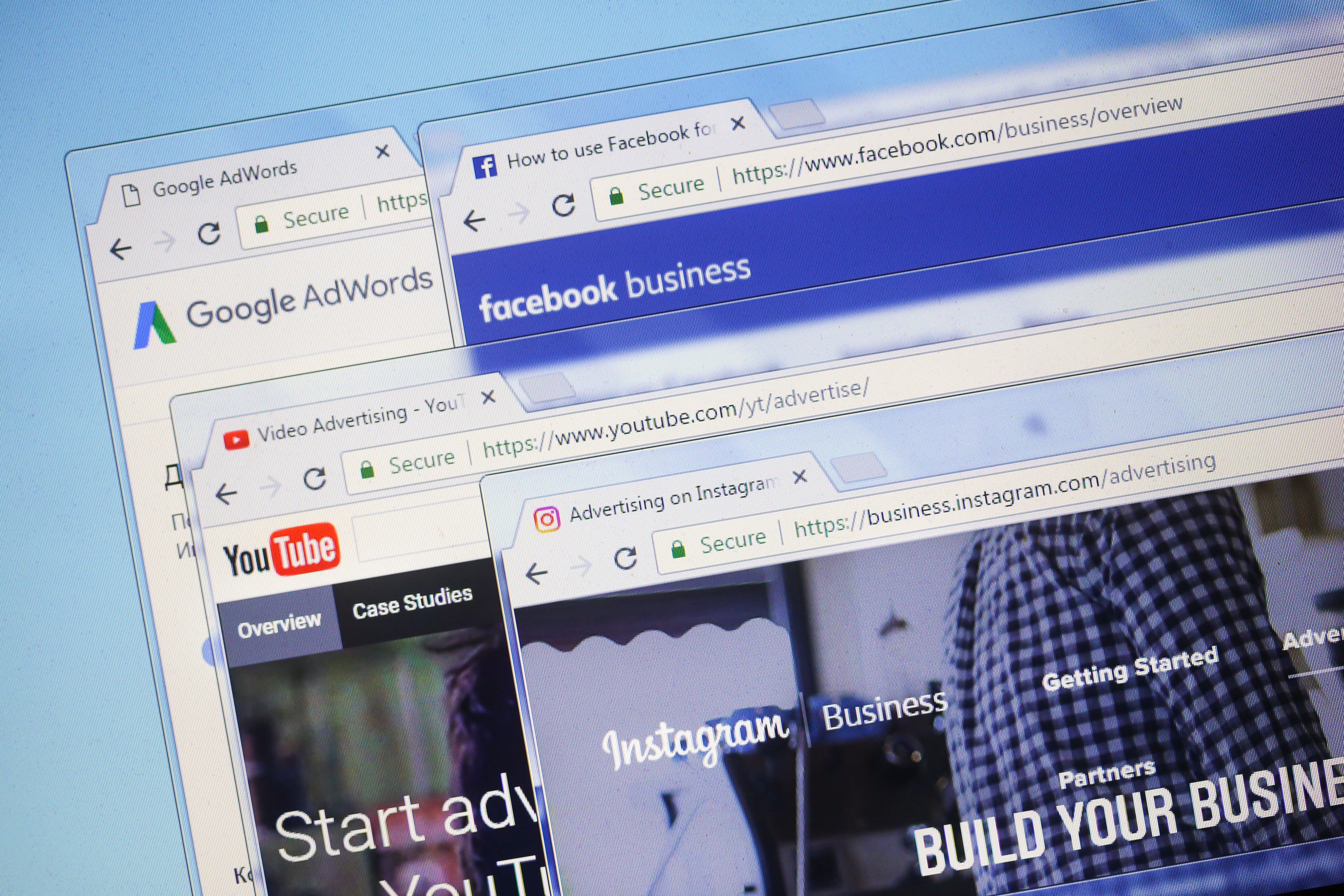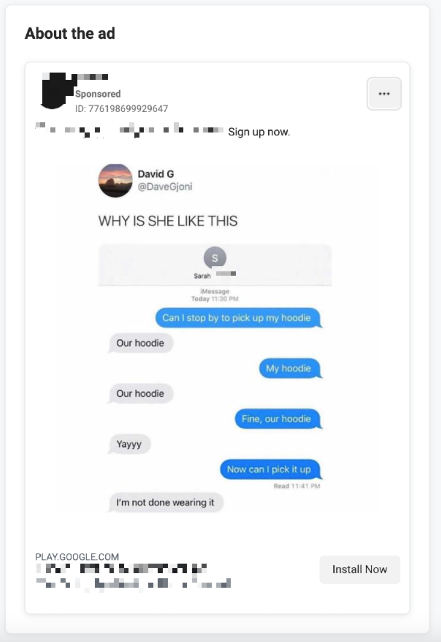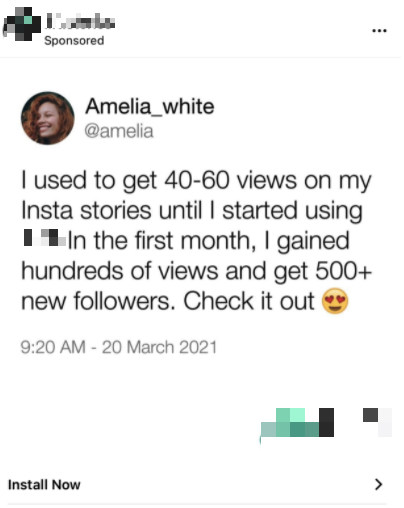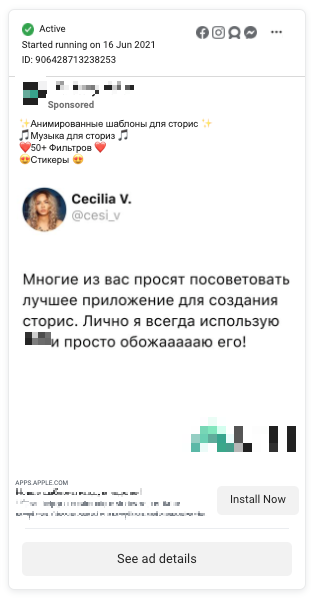Companies can use fake Twitter testimonials for Facebook ads, despite policies that forbid ‘misleading claims’
After the companies were contacted by The Independent, their adverts were quickly and quietly removed

Companies can use fake testimonials attributed to Twitter accounts that do not exist to advertise on Facebook and Instagram, despite Facebook’s ad policies forbidding “deceptive, false or misleading claims”.
The Independent found evidence of numerous companies - including a popular dating app and an app that offers templates for social media posts - using what appeared to be fake advertisements on social media.
One company has tens of thousands of likes on its Facebook account, and both companies have over tens of thousands of Instagram followers.

Both companies published adverts containing positive statements or humorous comments from users on Twitter to promote their services – which do not appear to have actually been posted. Facebook told The Independent that because they did not falsify information about specific features, they did not violate its terms.
After being contacted by The Independent, both companies’ advertisements were quickly and quietly removed from Facebook’s Ad Library - a searchable database that documents companies’ promotions on Facebook’s platforms. Facebook confirmed to The Independent that the now-removed adverts did run on its platforms.
Neither company provided comment nor explanation to The Independent when asked via email and phone calls. Twitter could not verify whether any of the accounts had ever tweeted any of the statements used in the companies’ advertisements.
It appears that some of the Twitter accounts used were managed by the company advertising itself; others simply seemed to take the name and image of accounts with little activity on Twitter.

“Many of you asked me which app I use for making stories. I’ve been using [the company] and I loooooove it!” one endorsement, posted by an account that is now subject to a Twitter suspension, claimed. “[The company] is the best app among all stories makers and it united a huge number of people. I doubled my subscriber base”, another said.

As well as the United Kingdom, the template company has run similar advertisements in other countries, including Russia and Spain, using the same fake accounts, with the tweets translated into other languages. Various versions of the advert, using a number of accounts with a variety of display photos featuring smiling young women, were run by the company. Both companies had been running these adverts for months.
One advert, which uses the same copy as one of the tweets and claims to be from a review on 25 April 2021, gives the template app five stars and tells others to “check it out”. The developer responds: “So happy to hear that”. The app had no reviews on the Apple App Store dated from April, The Independent found.
The terms and conditions for advertising on Facebook prohibit misinformation. “Ads must not contain deceptive, false or misleading claims, such as those relating to the effectiveness or characteristics of a product or service”, Facebook’s policy states. This includes “exaggerated claims, tips or tricks” and “false or misleading claims about product attributes, quality or functionality”.
Mark Zuckerberg, Facebook’s chief executive, has repeatedly claimed that Facebook ads do not contain misinformation. The company has faced sustained criticism for its approach to false stories and other misleading posts.
Facebook toldThe Independent that the ads did not violate its policies because they are not advertising misleading claims about the benefits of a product, service, or functionality.
When The Independent asked how testimonials from seemingly fake Twitter accounts could be interpreted as anything other than a misleading claim about the benefits of a product, and that companies could theoretically bypass Facebook’s policies in this way, Facebook declined to comment.
Join our commenting forum
Join thought-provoking conversations, follow other Independent readers and see their replies
Comments
Bookmark popover
Removed from bookmarks